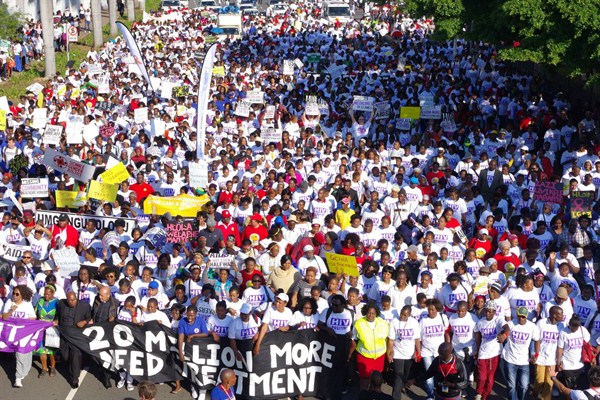The ecstatic press releases started even before the conference to replenish the Global Fund to Fight AIDS, Tuberculosis and Malaria officially closed last month in Montreal. The fund, which channels donor money to local programs that fight the three diseases in places where they are the most damaging, especially sub-Saharan Africa, had put out a call for $13 billion for its next three years of programming. By the end of the conference, the fund had raised $12.9 billion.
The bulletins out of Quebec captured the relief of a public health community that has watched its international financing dwindle, even as scientific advances make it increasingly possible to actually end some of the world’s worst diseases. That includes HIV, officially the deadliest epidemic in history, according to the United Nations. The decline in global health funding threatens not just to stymie scientific advances against diseases like HIV, but to actually reverse gains made in the past decade.
That’s why the celebration following the Global Fund’s replenishment was premature, according to health activists. Without bigger, more sustained and more diversified commitments, hundreds of thousands of people will continue to die from diseases that are easily prevented and treated. The situation calls into question the international community’s ability to meet public health threats, even as new dangers continue to emerge.

